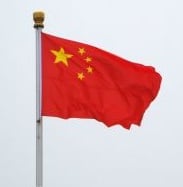China's push to get drug costs under control is hitting big pharma in the country this year, at least anecdotally, with insurance plans curbing reimbursement and urging provincial authorities to get more aggressive on prices in public tenders. 
Bloomberg reports that the signs of the slowdown were noticed in a report by Barclays that said the value of drugs sold in dollar terms between October to November last year fell 1%. That is far away from the glory days of 2013 when the value soared 17% in the second half, Bloomberg notes.
Still, China is the world's second largest market at $115 billion, Bloomberg said, citing data from IMS Institute for Healthcare Informatics.
With the exception of GlaxoSmithKline ($GSK), fourth-quarter and full-year earnings in constant currencies for Pfizer ($PFE), AstraZeneca ($AZN), Sanofi ($SNY), Roche ($RHBBY), Novartis ($NVS), Merck ($MRK), Eli Lilly ($LLY) and Novo Nordisk ($NVO) gained in China in 2015.
GSK saw a 26% drop on the quarter and 18% on the year, according to earnings results. Pfizer posted 10% growth for the quarter, while AstraZeneca gained 10% on the quarter and 15% on the year. Sanofi was up 27% on the quarter and 20% on the year at the high end. Lilly gained 2% in China on the quarter and 5% on the year at the lower end.
But Bloomberg said McKinsey & Co. senior partner Franck Le Deu, who covers healthcare for the consulting firm, said that in response to the cost-cutting efforts and reforms to the hospital system, adapting to the new market is not one size fits all.
"China is still a growth market for most companies, but they're not all in the same situation, it's largely driven by what they have on the market and also their attitude towards a changed market in terms of investment and commitment," Le Deu told Bloomberg.
Bloomberg also noted that this week, Li Bin, director of China's National Health and Family Planning Commission, said that price reductions of over 50% were under discussion in rounds of national-level bargaining for "expensive" imports in areas such as oncology.
However, no drug names were provided.
China faces slower economic growth in 2016 with a leadership meeting this past week targeting growth at 6.5% to above in 2016 from a final level of 6.9% in 2015.
The slower growth and an aging population has had a knock-on effect for almost all public spending in China, including for state-run health insurance plans that set reimbursement levels at public hospitals treating about 90% of China's patients, Bloomberg said.
As well, provinces which run their own drug tenders have sought cuts of 10% to 20% just to be able to enter bidding, Bloomberg said, citing McKinsey and a local drug company executive.
"The tenders are indeed relatively chaotic," Ding Lieming, chairman and chief executive officer of Betta Pharmaceuticals Co., a local drugmaker, told Bloomberg. "Once isn't enough, after the provincial tenders, cities also have one round of price negotiations, and then another round at hospitals."
One other effect is that a safety and quality push by the China FDA has targeted generics, which now need to be on par with brand-name drugs in efficacy and safety.
That has raised the costs of local producers, with many smaller firms opting out of the market in recent months.
- here's the story from Bloomberg
- and a related article from ECNS